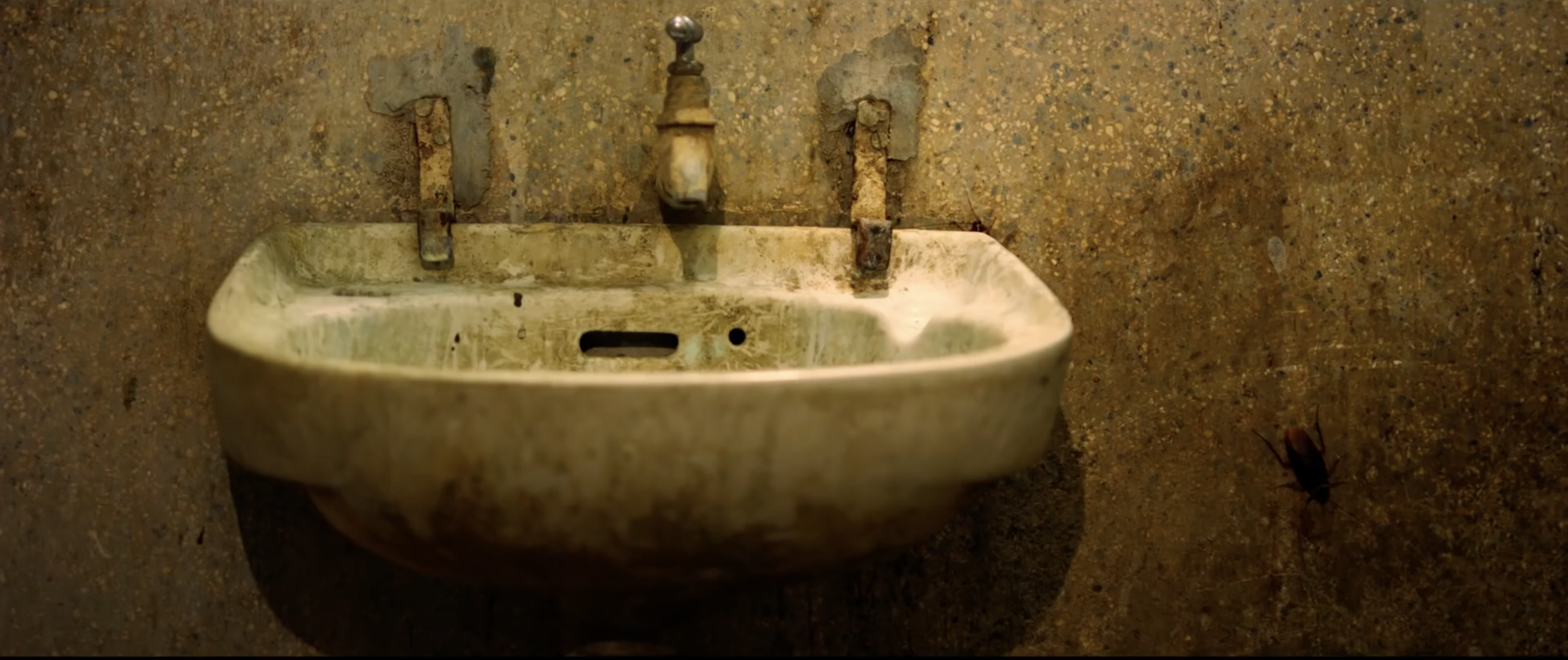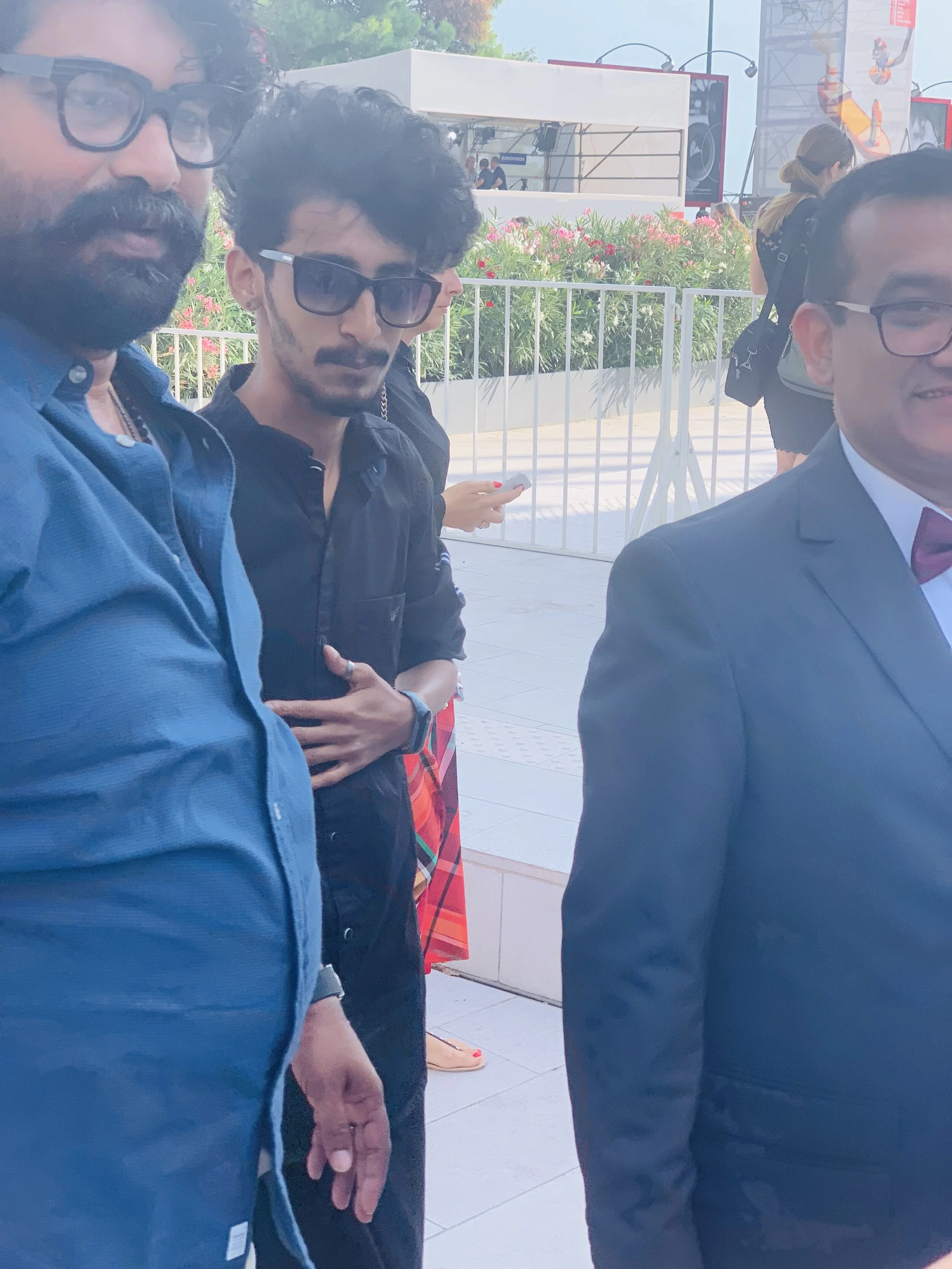Chola – Shadow of Water Directed by Sanal Kumar Sasidharan
Chola – Shadow of Water
Directed by Sanal Kumar Sasidharan
Cast: Joju George, Nimisha Sajayan, Akhil Vishnawath
From: India
Year 2019
Author review: Roberto Matteucci
Click Here for Italian Version
"I trusted you."
Suryanelli is a sixteen-year-old student from Kerala. One day in 1996, she escaped with her boyfriend Raju. Raju was an exploiter, and the girl helped him financially. He forced her to run away with him, but he abandoned her on the journey. On the bus, a lady (probably Raji's accomplice) lured her. In fact, she knew the name of Suryanelli. She was kidnapped and was handed over to another man. Suryanelli was beaten, hidden, raped for forty days.
The judicial trails were very slow and intricate, the causes were many coverages. Unfortunately, in Indian public opinion, there were many doubts about Suryanelli's behaviour. (1)
The best of the young Indian directors - Sanal Kumar Sasidharan - is from Kerala. He has a personal style, shown in the distressing, scenic film on the road Sexy Durga. A dark movie set on an endless, obscure motorway of Kerala. A boy and a girl, engaged, seek a love escape from their families. The escapade was not easy for the crazy, bad, surreal encounters.
At the 76th Venice Film Festival, Sanal Kumar Sasidharan presents the disturbing film Chola – Shadow of Water.
The author admits the connection with the sad story of Suryanelli.
“You’ve said the Suryanelli case was an inspiration for Chola. But was there anything more? The reason I ask is that I sensed a lot of anger in the film. [...]
The Suryanelli case was shocking to me. It happened when I was in school, and a lot of questions about the attitude of the victim and her captors popped up in my mind.
The idea of Chola stemmed from these questions. People didn’t understand certain things back then and they don’t understand it even today, which explains why some viewers responded negatively to the film. They’re not willing to analyse the psychological state that prompts this kind of behaviour. They see the female character doing something and immediately go, “That’s problematic!” (2)
On the lush border between Kerala and Tamil Nadu, two men wait in an old, run-down jeep. It is dawn, the weather is bad, so much wind, cold, fog. They are a young man and his boss.
They are waiting for the childish Janaki. She is the boy's girlfriend. They wish to have a few hours together, a simple city holiday. They visit a shopping mall, walk along the shoreline. They love each other.
Nevertheless, in their village arrived the news of the love affair, Janaki is in terror. The boss, until then excluded and isolated, takes matters into his own hands. In the middle of the night, he accompanies them to a despicable motel.
The boss is similar to a bad bear. He understands the couple's weaknesses, and he becomes in the most infamous depraved human being.
Chola means wetland. The power of water is supernatural, the director specifies it:
“In Malayalam, chola means wetland. It also means waterfall. Water is one of the powerful forces of Nature. It’s beautiful when it’s calm and violent when there’s a surge. In that sense, water is a metaphor for life.” (2)
The location of the last part is in a river in flood, with a beautiful waterfall, even fishing with hands is possible. Water is the metaphor of purification in a shocking ending.
The theme is violence against women. In this case in India but, of course, it is a world situation.
It is the same subject as Sexy Dunga, the Indian women's issue is at the heart of the director:
“90 per cent of the marriages are facilitated by the family members, even today. Once a girl turns 18 or 19, she is married off the next day, to someone she has not yet seen or interacted with. Her parents look at the man’s financial status, looks, power, family background, and then force her to marry him. There is no other communication between them whatsoever.” (1)
Janaki is a teenage student, clumsy, not pretty, does not put on makeup, wears shabby clothes.
She is very humble, shy, does not look smart, but she is honest, she loves her family, she loves her boyfriend.
Lust, pride, anger, do not belong to her, she is only awkward.
Even the boyfriend is modest, but exuberant, playful, feels free, is in love.
In the jeep they play, in the mall, they hold hands, sit on the beach wet by the waves.
Regrettably, both will be crushed by the disgusting sexual libido of the boss.
He is a bear both physically and in gestures as when he fishes with his hands in the creek.
He does not speak, he imposes himself with hard manners and bends the two young under his evil and malignant dome.
Sanal Kumar Sasidharan has the ability to combine a vigorous realist conclusion with a macabre imaginative tone.
The motel is dingy. The sink is filthy, black. The tap is dripping, a repulsive cockroach passes over it. In this place the guys have an agonizing quarrel. And the constant wailing and screaming of a girl, who was completely succumbing, without strength to defend herself and to rebel. What would it change if she were rebelled?
The director prefers filming in Kerala nature. With an establishing-shot, he films from above the jeep's journey into the forest. The frame draws a path of curves. The same happens in the river.
The scenes in the motel, the journey into the darkness and the initial one in the fog, outline the choice of alternating and obscure lights. Only a few sources of lighting, often artificial; they are always intense, like the headlights of the car in Sexy Durga.
The camera is frequently static with long-shot. In the motel, the camera is outside the building. Long-shot, it is night. The wall is dirty white. There are two doors. In the first one, there are the stairs in the darkness. In the other one, there is Janaki. She is frightened, sitting, offended, lost, tired.
The soundtrack is loud, painful. The noise of diegetic water is as the extradiegetic music. The diegetic sound is even composed of repetitive and obsessive phrases of Janaki: "I want to go home" or the opposite "I don't want to go home". They are unbearable, maniacal, incessant voices. The scream hit our logic. What logic can exist in the rape of a defenseless teenager?
Even the boy has a mantra "boss", with which he calls, pleads, cries, his boss.
In these repetitions, there is both pain and inability to react.
The film is rich in social elements, but not ethical. Too confused characters to have their own moral stature and reasonable explanations.
The author describes the amazing reaction of the audience during the screening of this dichotomy story in Venice Festival:
“It was a 1,200-seater theatre. My sales agent gave me a warning saying there won’t be more than 100 people. She said it might drop down to 50 (laughs). Fortunately for us, over 800 people turned up for the screening.
How did they react?
Most of them were foreigners and they were in a state of shock. The movie was too harsh for them. Chola ends by asking a cardinal question and people were curious to find answers. This is why I like Kieslowski. His movies do something inwards, but there’s no rational explanation. Sometimes, I’m compelled to explain what I intended, when the audience comes up with a reading that is totally against the idea.” (3)
There is no rational, sensible motivation in the events of a trip to Kerala.








